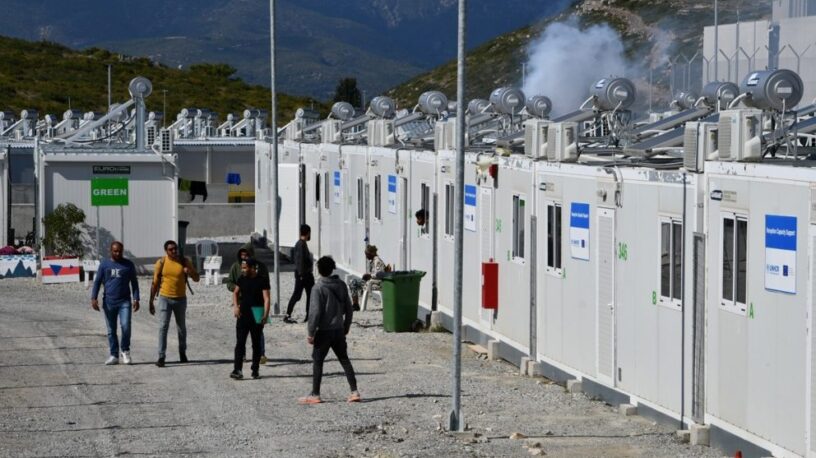After MEPs backed the reform of European migration and asylum policy, rights groups and left-wing MEPs expressed dismay, saying the changes will likely undermine refugees’ rights.
The new Migration and Asylum Pact, which the European Parliament adopted on Wednesday, is intended to improve and fasten EU asylum and migration management procedures. However, civil society groups and left-wing MEPs said it will lead to a sharp deterioration of refugees’ rights.
“In adopting this report, [the European] Parliament is responding to citizens’ expectations to strengthen the EU’s role in tackling all forms of irregular migration and strengthen the protection of the European Union’s external borders while respecting human rights, to apply common rules uniformly in all Member States on the first reception of migrants, to strengthen the EU’s role and reform the European asylum system based on the principles of solidarity and fair share of responsibility,” stated the parliament.
The new pact was backed mostly by right-wing and far-right MEPs; 322 MEPs voted in favour, 266 voted against, and 31 abstained.
It is said that, with the new pact, asylum claims will be examined more quickly, and returns will be more effective. Identification of asylum seekers at arrival will be improved. Mandatory security, vulnerability, and health checks will be introduced for people entering the EU irregularly.
Member States can choose between taking physical responsibility for asylum applicants, making financial contributions, or providing operational support to host states.
“Today, European solidarity was lost. It sank to the bottom of the Mediterranean, along with the thousands of souls of those who were looking for hope and a better tomorrow,” Greek leftist SYRIZA MEP Kostas Arvanitis said about the vote’s result.
Arvanitis said that, by allowing member states, instead of real solidarity in the form of the equal relocation of asylum seekers, to opt for monetary “solidarity”, all the burden wil fall on first-receiving countries, such as Greece and the rest of the countries of the South, turning them them into migrant “warehouses”.
The Danish Refugee Council, DRC said it feared that asylum seekers will be either violently pushed back, or contained, under bad conditions in closed centres at the EU’s external borders.
“The EU Pact will not provide solutions to the real challenges faced by people seeking protection in Europe, nor to the lack of responsibility sharing between EU’s Member States,” the DRC said.
“With the EU Pact, the risk of asylum seekers being denied access to protection is likely to increase because they want to allow Member States to waive asylum seekers’ rights if they experience so-called ‘instrumentalization of migrants’,” it added.
Once approved by the Council and published in the Official Journal, the pact will enter into force. It will be applied in two years’ time. Member countries will have two years time to embed it into their national laws.



